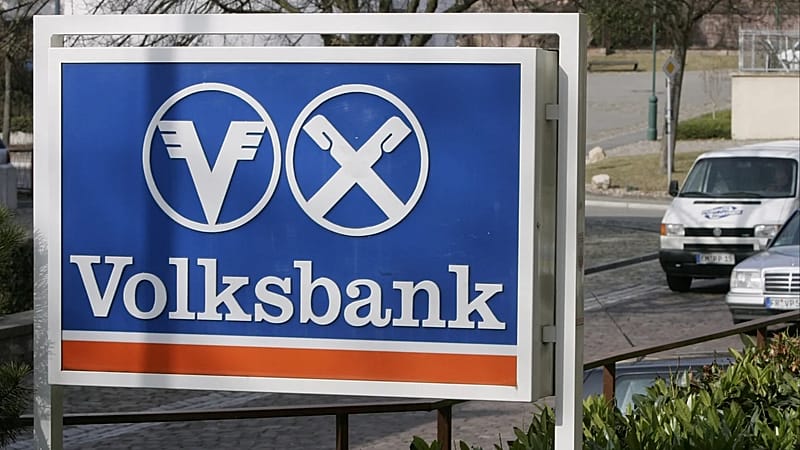German co-op banks close AfD accounts, prompting party outcry over ‘political’ move

Two co-operative banks in the East Westphalia region of Germany have terminated the accounts belonging to the local Alternative for Germany (AfD) chapter, the AfD district association in Minden-Lübbecke said in a statement calling the decision "politically motivated".
The Verbund Volksbank OWL and Volksbank in Ostwestfalen confirmed the news to local German outlets on Tuesday, but refused to provide specific background on the cases, citing "banking secrecy laws".
Volksbanken are part of Germany’s co-operative banking network (Genossenschaftsbanken) and are owned by their members rather than external shareholders.
Each operates regionally, and local customers hold shares, elect a supervisory board and profits are reinvested to serve the community rather than to maximise returns for external shareholders.
On Sunday, AfD first published a statement claiming their accounts had been closed.
"Private individuals, companies, political parties or factions: they all need a bank account. Regular payments, such as employee salaries, are processed through this account," the AfD district office said in this statement.
The chairman of the AfD Minden-Lübbecke district, Sebastian Landwehr, condemned the Volksbank's decision targeting "Germany's biggest opposition party."
"Since there is no misconduct on the part of the AfD district association and the trustworthiness of the district association has not changed, only one explanation remains: This is so-called 'debanking', ie, a politically motivated account termination," he said.
A pattern of 'de-banking'
In January a local AfD chapter said Volksbank Düsseldorf-Neuss had terminated its account. The bank only confirmed in general terms and again pointed to customer confidentiality and its right to end relationships.
In summer of 2024, the Berliner Volksbank ended the AfD federal party’s donations account after the "Grandmother's Against the Right" group — which organises campaigns against the far-right — petitioned for it.
In September 2024, Deutsche Kreditbank cancelled the accounts and cards of newly elected AfD Thuringia politician Sascha Schlösser just days after his state election win.
AfD called for all "democratically-minded customers of Volksbank" to "switch to another bank."
On 2 May, the German Office for the Protection of the Constitution classified AfD as a confirmed right-wing extremist organisation based on information they had received from domestic intelligence bodies, after initially deeming it a "suspected" case.
Its assessments carry significant political and legal weight — once a group is classified as extremist, state institutions and private actors often treat it as a potential security risk, shaping everything from surveillance powers to how banks and companies engage with it.
Closing in on the AfD
Deutsche Bahn, Siemens, Miele, Oetker, Stihl and Vorwerk have run pro-democracy or “no to AfD” style campaigns such as the "We Stand for Values" push ahead of the German federal elections this year, where they claimed that AfD positions are in conflict with their values and staffing needs.
The German newspaper Börsenzeitung reports that the Volksbanken are legally allowed to close AfD accounts. However, when such closures are justified implicitly with reference to values, they reveal a political motivation — and that is problematic for a party still permitted to participate in all elections.
What remains for the AfD after the many account closures by the Volksbanken are accounts with the Sparkassen. As public-law institutions, they are obliged to maintain accounts for political parties. A 2018 ruling by the Federal Administrative Court made this clear, citing the party privileges enshrined in the German constitution.

